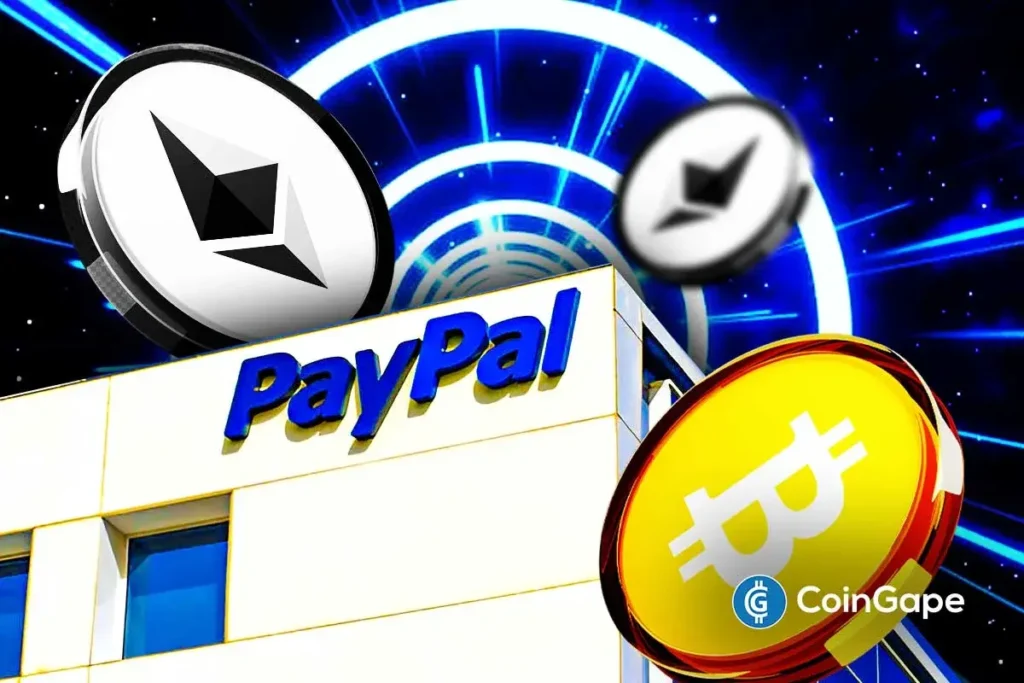PayPal’s Integration of Cryptocurrency: A Major Shift in Peer-to-Peer Transactions
In a significant advancement for digital finance, PayPal has unveiled its plans to integrate cryptocurrency into its peer-to-peer payment flow. This innovative feature will enable American users to send popular cryptocurrencies such as Bitcoin and Ethereum, as well as the newly introduced PayPal USD (PYUSD), directly within the PayPal app. This strategic move not only enhances user convenience but also marks a pivotal evolution in the way people engage with digital money.
Seamless Payments with PayPal Links
The recent announcement aligns with PayPal’s broader strategy to streamline cryptocurrency transactions for everyday use. With the introduction of PayPal links, users can generate personalized, one-time payment URLs tailored for individual transfers. Each link is designed for single-use and becomes invalid after ten days if left unclaimed. This functionality is expected to cater to various payment scenarios while ensuring privacy and security for users.
Expanding Cryptocurrency Acceptance
In addition to the introduction of PayPal Links, PayPal has broadened its reach by allowing merchants to accept over 100 cryptocurrencies as payment options. As emphasized by Diego Scotti, General Manager of PayPal’s Consumer Group, this initiative highlights the growing role of digital assets in everyday commerce. PayPal aims to be a constant presence in various communication channels—like messaging apps and social media—where payments and transactions can conveniently occur.
User Privacy and Tax Considerations
Despite the growing complexity of digital payments, PayPal has reassured users that personal transfers will remain confidential and free from unnecessary tax implications. This emphasis on privacy is crucial in maintaining user trust and engagement. According to recent performance metrics, PayPal’s peer-to-peer services have already witnessed a 10% increase in total payment volume during the second quarter, affirming the burgeoning acceptance of these payment alternatives.
The Role of PayPal USD (PYUSD)
Central to this new payment paradigm is the introduction of PayPal USD (PYUSD), a dollar-backed stablecoin issued by Paxos Trust Company. Fully backed by reserves in cash and U.S. Treasuries, PYUSD has been available for use on both PayPal and Venmo since its launch. By embracing PYUSD alongside established cryptocurrencies like Bitcoin and Ethereum, PayPal is fortifying its position in the digital payments landscape, demonstrating a commitment to making digital assets a viable tool for everyday transactions.
Global Influence and Consumer Adoption
PayPal’s decision to incorporate cryptocurrency into its services isn’t just a local phenomenon; it also reflects a growing global trend in digital finance. The integration aims to cater to a worldwide audience as digital wallets increasingly accept crypto and stablecoins. This expansion is set to empower users globally by facilitating seamless cryptocurrency transactions, making it a more routine aspect of financial interactions.
Conclusion: A Pioneering Step Forward
The integration of cryptocurrency into PayPal’s payment flow marks an important step in the evolution of digital finance. With user-friendly features like PayPal Links, expanded merchant support, and the strategic introduction of PYUSD, PayPal is setting the stage for an increasingly digital future. As the company continues to innovate and adapt to the ever-changing landscape of finance, users can look forward to a more integrated, efficient, and secure way to transact with cryptocurrencies. The shift not only enhances user experience but also signals a mainstream acceptance of digital currencies in everyday transactions.
By following these trends and insights, users and businesses alike can navigate the evolving world of cryptocurrency with greater confidence and security, ensuring they remain ahead in the digital economy.


